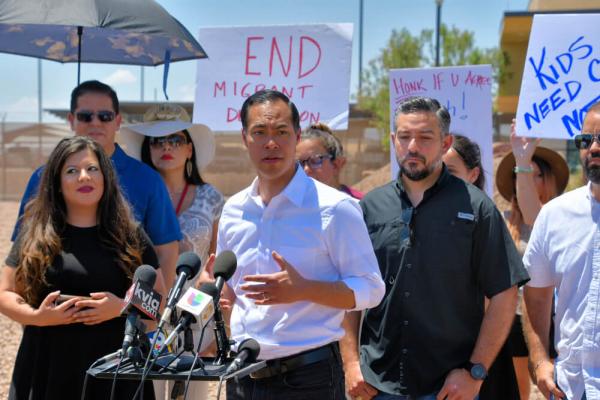Jul 11, 2019
A Univision poll found that millennial (ages 18-33) Latinx voters believed that Julián Castro did the best among all presidential candidates in the first Democratic primary debate. This demographic is important because nearly half of all Latinx voters in the U.S. are millennials. Castro is connecting with this emerging generation because of his shared experiences and shared convictions.
Read the Full Article

Already a subscriber? Login
